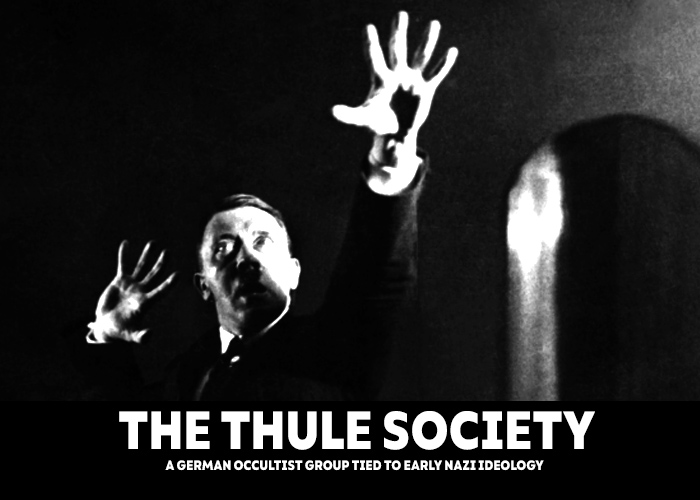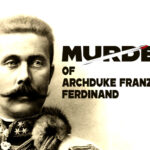The Thule Society was a mysterious and influential secret society in Germany during the early 20th century. It played a crucial role in shaping the ideology that eventually became part of the Nazi movement. But what exactly was the Thule Society? Who were its members? And how did an occultist group contribute to one of the darkest chapters in history?
This article will take you deep into the origins, beliefs, key figures, and impact of the Thule Society. We’ll explore how this secretive group, obsessed with mysticism, racial purity, and lost civilizations, ended up laying the groundwork for Adolf Hitler’s rise to power.
Origins of the Thule Society
The Thule Society was founded in Munich, Germany, in 1918 by Rudolf von Sebottendorf. His real name was Adam Alfred Rudolf Glauer, and he was a German occultist and adventurer. Sebottendorf had spent time in the Ottoman Empire, where he allegedly studied Sufism, alchemy, and astrology. By the time he returned to Germany, he was deeply involved in secret societies and mystical practices.
The society took its name from Thule, a mythical northern land often linked to Hyperborea, a supposed ancient Aryan homeland. This concept was rooted in Nordic mythology and heavily influenced by the idea that the Aryan race descended from a lost civilization.
The group’s full name was “Studiengruppe für Germanisches Altertum” (Study Group for Germanic Antiquity), but it became known simply as the Thule Society.
What Were Their Beliefs?
The Thule Society combined occultism, mysticism, and radical nationalism. Their core beliefs included:
- Aryan Supremacy – They believed the Aryan race was superior and destined to rule over others.
- Nordic Myths & Lost Civilizations – They were fascinated by legends of ancient Germanic tribes and lost lands like Atlantis and Hyperborea.
- Occult Practices – They engaged in astrology, rune magic, séances, and secret rituals.
- Anti-Semitism – They promoted the idea that Jews were an enemy of Germany and Aryan purity.
Their mix of racial ideology, nationalism, and mysticism later became central to Nazi beliefs.
Key Members and Influences
Many influential figures were associated with the Thule Society, either as direct members or through indirect influence.
Rudolf von Sebottendorf

As the founder of the Thule Society, Sebottendorf played a key role in shaping its ideology. However, he was later expelled from Germany and had little influence over the group after 1919.
Karl Harrer

Harrer was a journalist and occultist who helped establish the German Workers’ Party (DAP) in 1919. This party later evolved into the Nazi Party.
Anton Drexler

Drexler, a far-right nationalist, worked alongside Harrer to build the DAP. He believed in socialist ideals mixed with nationalism, which became the foundation of early Nazi ideology.
Dietrich Eckart

Perhaps the most influential of all, Eckart was a poet, playwright, and mentor to Adolf Hitler. He introduced Hitler to the Thule Society’s ideas and helped shape his early beliefs.
Other Members
Some reports suggest that Himmler, Rosenberg, and Hess had connections to the Thule Society, but there is no direct proof that Hitler himself was ever an official member.
How the Thule Society Influenced the Nazi Party
One of the most significant contributions of the Thule Society was its role in founding the Nazi Party.
The German Workers’ Party (DAP)
The Thule Society funded and supported the DAP, which was formed in 1919. They provided financial backing, meeting spaces, and ideological training.
In 1920, the DAP changed its name to the National Socialist German Workers’ Party (NSDAP)—what we now know as the Nazi Party.
Hitler’s Rise
When Hitler joined the DAP in September 1919, he quickly became one of its most powerful speakers. He absorbed many of the Thule Society’s racial theories and nationalist ideas, integrating them into Nazi ideology.
By 1921, Hitler took over leadership of the Nazi Party, and the influence of the Thule Society started to fade. However, its members and ideas remained deeply woven into the movement.
Occult Beliefs and Rituals
The Thule Society was deeply involved in the occult. They conducted rituals, séances, and mystical studies. Some of their practices included:
- Rune Magic – Using ancient symbols for divination and rituals.
- Meditation & Channeling – Attempting to contact spirits for guidance.
- The Search for Atlantis & Hyperborea – Believing that Aryans originated from a lost supercivilization.
These beliefs influenced Heinrich Himmler, who later established the Ahnenerbe, an SS organization dedicated to researching ancient Aryan history and occult sciences.
The Downfall of the Thule Society
As Hitler consolidated power in the 1930s, the Thule Society lost its importance. Many of its members either joined the Nazi Party or were absorbed into other organizations like the SS.
By 1933, when Hitler became Chancellor, the Thule Society ceased to exist as an official group. Some of its key members were killed or disappeared, while others blended into the Nazi movement.
Sebottendorf himself returned to Germany in 1933 but was arrested and later died under mysterious circumstances in 1945.
Legacy and Impact
While the Thule Society was short-lived, its influence on Nazi ideology was undeniable. Their ideas about Aryan supremacy, mysticism, and secret societies shaped the beliefs of key Nazi figures.
Even today, neo-Nazi and extremist groups sometimes reference the Thule Society, believing in its myths and conspiracies.
Did the Thule Society Cause World War II?
Not directly. However, it helped create the ideological foundation for Nazi beliefs, which led to the war and the Holocaust.
Was Hitler a Member?
No official records show that Hitler was a direct member, but he was deeply influenced by people associated with the society.
Conclusion
The Thule Society was a fascinating yet dangerous mix of occultism, nationalism, and racism. Though it lasted only a few years, its impact was felt for decades.
It’s a chilling reminder of how dangerous ideas can spread and take root, leading to devastating consequences.
Thank You for Reading!
I hope you found this deep dive into the Thule Society informative and engaging. If you have any thoughts, questions, or insights, feel free to share them.
Thank you for reading!





